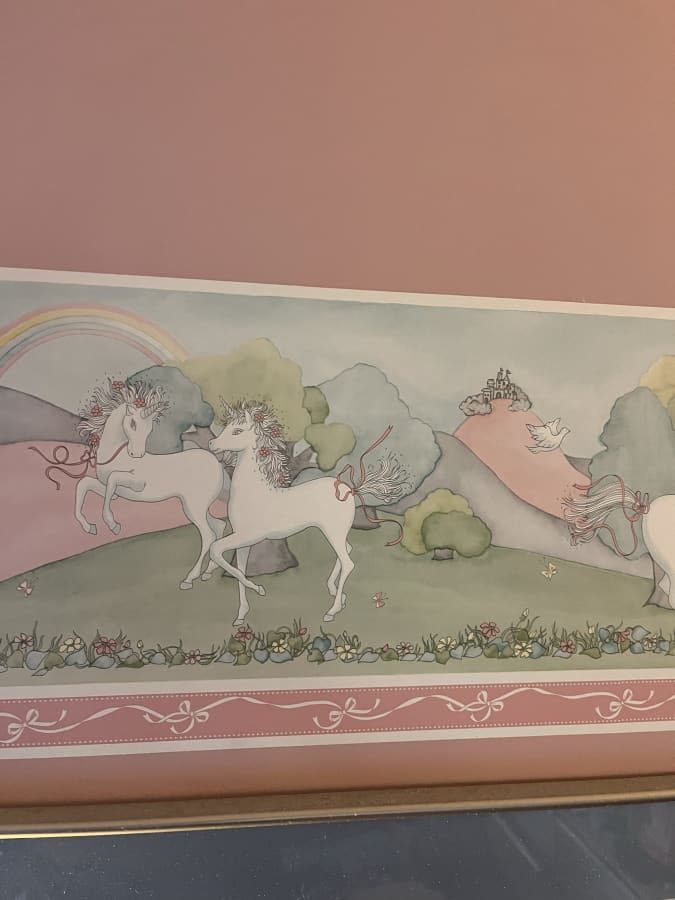The Full Belmonte, 1/5/2025
A snowplow passes through Lowville, New York. (Cara Anna/AP)
“Nearly 70 million people are under winter alerts nationwide, with a powerful weather system expected to bring a potent mix of snow, ice and blizzard conditions, accompanied by winds gusting up to 50 mph. The storm will create treacherous travel conditions and potential power outages across at least a dozen states.
For a generation now, New Orleans residents have been tested by a bevy of high-profile scourges. So many have internalized a hard and potent lesson that often gets celebrated here as ‘resilience’ but really boils down to this: How to carry on in the face of the unimaginable.
President-elect Donald Trump helped get Mike Johnson across the finish line, but the dramatic House speaker vote signals that there are challenges ahead. Johnson informed Republicans at a closed-door meeting that Trump favored moving his agenda as one sweeping package.
Trump will face no legal penalties for his conviction in the hush money case, a New York judge ruled. Judge Juan Merchan, however, upheld his conviction. Merchan set sentencing for January 10 but indicated the case is essentially over.
The active-duty US Army Green Beret who authorities say exploded a Tesla Cybertruck outside the Trump International Hotel in Las Vegas struggled with injuries relating to his military service and said he was depressed while they were together, an ex-girlfriend told CNN.” [CNN]
Trump Has Reeled in More Than $200 Million Since Election Day
“The president-elect has boasted about the donations for his inauguration, library and political activities from those seeking favor or perhaps in some cases, atonement.” [New York Times]
Trump's Greenland and Panama Canal ambitions face Republican skepticism
BY ALEXANDER BOLTON
© Adobe Stock
“Republican lawmakers are scratching their heads over President-elect Trump’s ambitions to take over Greenland and the Panama Canal, grand plans the incoming commander in chief put back on the table over the Christmas and New Year’s recess.
GOP senators and House members view the prospect of the United States taking over Greenland as particularly outlandish, but they are leery of confronting Trump.”
Read the full story here at The Hill
Jan. 6 accountability falters as Trump return nears
BY ELLA LEE AND REBECCA BEITSCH
“The prospect of accountability for President-elect Trump and those who played a role in the storming of the Capitol is dimming as he’s set to take office and the GOP garners control of Washington — to the dismay of his critics.
Trump’s two election interference cases have both hit major roadblocks ahead of his return to power, and once in office he’s pledged to pardon many of the 1,500 charged in connection with storming the Capitol.”
Read the full story here at The Hill
Johnson tells House GOP Trump wants one reconciliation package
BY MYCHAEL SCHNELL
“Speaker Mike Johnson (R-La.) told House Republicans on Saturday that President-elect Trump wants to pass one reconciliation package, a strategy that runs counter to the two-bill effort several other GOP lawmakers had been pushing for.
Johnson made the announcement during a private House GOP meeting at Fort McNair, five sources in the room told The Hill, as the conference gathered to discuss plans for moving legislation through the budget reconciliation process. The Republican trifecta — taking full control of the White House and both chambers of Congress in the 2024 election — is looking to use it to bypass Democratic opposition and pass many of its priorities.”
Read the full story here at The Hill
INTERNATIONAL
How Fear and Conspiracy Theories Fuel South Korea’s Political Crisis
Right-wing YouTubers helped President Yoon Suk Yeol win his election. They are now his allies in the wake of his botched imposition of martial law.
Every day for the past week, Kim Kwon-seop, 72, has joined thousands of others gathered near the home of South Korea’s impeached president, Yoon Suk Yeol. They were determined to shield Mr. Yoon from prosecutors who wanted to detain him on insurrection charges stemming from his short-lived declaration of martial law last month.
To them, it was the opposition who had committed insurrection, abusing its majority power at the Assembly to repeatedly block Mr. Yoon’s political initiatives. To them, the opposition’s parliamentary majority was invalid because the election last April was rigged. And to them, protecting Mr. Yoon was synonymous with protecting South Korea from ‘North Korea followers’ who have taken root in every corner of their society, from the judiciary to schools to the news media.
South Koreans commonly dismiss such conspiracy theories as little more than online demagoguery spread by right-wing YouTubers with the help of social media algorithms. But amid the country’s entrenched political polarization, they have fueled the turmoil over Mr. Yoon’s situation, driving zealous believers like Mr. Kim to take to the streets in large numbers, calling for the president’s return to office….” Read more at New York Times
SOCIETY
What Happens When a Whole Generation Never Grows Up?
As American 30-somethings increasingly bypass the traditional milestones of adulthood, economists are warning that what seemed like a lag may in fact be a permanent state of arrested development.
By Rachel Wolfe
“Americans in their 30s have never looked less like grown-ups.
Amid steep declines in homeownership, marriage and birth rates, economists have long been warning that young people are struggling to meet the milestones of adulthood. Although some 30-somethings are consciously choosing a less traditional path, many say these goals are simply out of reach.
‘It feels like the instructions for how to live a good life don’t apply anymore,’ says 38-year-old Cody Harding, who is single and lives with three roommates in Brooklyn. ‘And nobody has updated them.’
Now, as a mix of social and economic factors holds back an entire generation, what researchers once called a lag is starting to look more like a permanent state of arrested development.
‘We’re moving from later to never,’ says Richard Reeves, president of the American Institute for Boys and Men. He notes that the longer people take to launch into a more conventional adulthood, the less likely they are to do it at all.
A third of today’s young adults will never marry, projects conservative think tank the Institute for Family Studies, compared to less than a fifth of those born in previous decades. The share of childless adults under 50 who say they are unlikely to ever have kids, meanwhile, rose 10 percentage points between 2018 and 2023, from 37% to 47%, according to Pew Research Center.
‘You can kick the can down the road, but only so far,’ says Reeves.
The conventional explanation for what’s freezing young adults in place is that they can’t afford to grow up, given rising inflation and ballooning housing costs. Yet this doesn’t quite explain what’s going on.
It’s true that 30-somethings have had a run of tough economic luck. Many of them entered the job market during the Great Recession, rode out the pandemic by moving back in with their parents, and are now dealing with the worst housing market in 40 years. But the numbers paint a more complicated picture.
Median wages for full-time workers ages 35 to 44 are up 16% between 2000 and 2024, from $58,522 to $67,652 adjusted for inflation, according to the Labor Department. The overall wealth of 30-somethings, too, rose 66% between 1989 and 2022, according to the St. Louis Federal Reserve, from $62,000 to $103,000.
Harding and his rescue Chihuahua, Peanut, at Sidepiece, a furniture showroom he co-owns in the Bushwick neighborhood of Brooklyn. Photo: Bing Guan for WSJ
In many ways, this age group is in a better place financially, on average, than their parents were at this age. The problem is that they don’t seem to know it. Only 21% of adults in their 30s rated the overall economy as good or excellent last year, per the Federal Reserve, and economists say young adults are significantly more pessimistic about the future than prior generations were.
‘They see the world they are going to live in 20 years from now as really screwed up,’ says Brookings Institute economist Carol Graham, who studies well-being. She points to how climate change, political polarization, AI and a growing resentment of corporate power have made the future feel more uncertain.
Younger adults are far less likely than Americans over 50 to say achieving the American Dream of success from hard work is still a possibility, according to a Wall Street Journal/NORC poll in July. But here, too, the reality is more complicated. At least part of what’s stunting the growth of a generation of young people are outsized dreams of what a good life looks like.
‘Our expectations are so much higher today,’ says Melissa Kearney, an economist at the University of Maryland whose research focuses on children and family. ‘Generations before us didn’t expect to have large houses where every kid had a bedroom and there were multiple vacations.’
To be sure, financial averages are just that. A sizable share of this generation is worse-off than their parents were. Young men in particular are struggling in the labor market. And some of the traditional goals of adulthood really have become more difficult to achieve. Student debt has more than doubled over the past two decades, yet a college degree is no guarantee of a well-paying job. Rising interest rates and dwindling supply have also put homeownership out of reach for a growing share of Americans. The median age of first-time homebuyers hit a record high of 38 this year, according to the National Association of Realtors, up from 35 in 2023 and 29 in 1981.
Still, growing up with less pressure to follow the same narrow route to adulthood imposed on their parents and grandparents—a career, spouse, house and kids all by age 35—has raised the bar for what these milestones look like, if they choose to hit them at all.
Stymied by this mix of high expectations and challenging economic circumstances, many 30-somethings sound disoriented and unsure about what it means to be a successful adult now.
After watching his parents raise three kids and buy a house on his parents’ salaries in retail and manufacturing, Cody Harding assumed that being the first in his family to earn a Bachelor’s degree would grant him an even better quality of life. Although he now makes around double what his parents did at the height of their careers combined, he’s disappointed by what it affords him in New York City.
Harding says graduating college in 2008, just as companies across the country were hemorrhaging funds and laying off workers, was the first sign that he seemed destined for an economically precarious adulthood. When he couldn’t put his double major in English and history to use, he waited tables and worked in construction.
‘I never caught up,’ he says. Harding entered law school to wait out the sluggish labor market, but emerged with $180,000 in student-loan debt. He now owes over $200,000, after making only the minimum payments.
Instead of being able to support a family or at least live on his own as a full-time lawyer, he’s paying $1,700 in monthly rent to live with roommates in Brooklyn. When it became clear his dreams of homeownership were not achievable in New York, he recently got help from his parents to close on a fixer-upper in his hometown of Easton, Pa. Like many of his peers, he earns extra income from a side hustle: in his case running a vintage furniture store.
Harding still hopes to get married and have children, but has grown disenchanted with a dating culture that he feels prizes short-term flings over long-term commitment. He’d also rather stay single than compromise on the wrong fit. Most of his friends are in the same state of suspended adolescence, he says, which sometimes makes it feel like time is standing still.
‘It’s fine trying to reinvent what a modern life looks like, but I’m a little disappointed by everything that it lacks,’ Harding says. ‘I’m sick of partying. I did that already. I want to grow up.’
Renata Leo, 31, has lived in her childhood home with her parents in Glassboro, N.J. since graduating college in 2015.Renata Leo
Just over half of Americans between the ages of 30 and 40 were married as of last year, according to an analysis of American Community Survey data by Aspen Economic Strategy Group economist Luke Pardue. This is down from more than two thirds in 1990, when those in the middle of the cohort were born. The share of women in this age range who had ever given birth fell 7 percentage points between 2012 and 2022 alone, Current Population Survey data show, from 78% to 71%.
‘Part of this is social expectations, part of this is shifting priorities and part of this is economic realities,’ says Kearney at the University of Maryland, who has looked at how the same dynamic is playing out in high-income countries around the world. ‘But all together they seem to be pushing in the same direction, which is increased rates of staying single and staying childless.’
Even leaving the nest—long considered a prerequisite to full-fledged adulthood in the U.S.—is proving harder to pull off.
By the time Renata Leo’s parents were 31, the age she is now, they had gotten married, purchased a home and had her. Yet she is still sleeping in her childhood bedroom, gazing at the same unicorn wallpaper put up before she was born.
‘Redecorating would mean accepting that I’m not leaving,’ says Leo, who has been back home in Glassboro, N.J., since graduating college in 2015 with $20,000 in student-loan debt.
She was close to moving out in 2020, but the pandemic’s surging home prices derailed plans to buy a starter house with her then-fiancé. (He moved into her childhood bedroom with her before they broke up this past summer.) Since losing her full-time job at a startup in 2021 she’s been working part-time and has felt stuck, unsure of what she wants to do next.
‘I feel like a failure,’ she says, adding that a recent chance meeting with the principal of her high school, where she graduated as valedictorian, left her scrambling for how to describe what she’s been up to for the past 13 years. ‘I let the fact that I published a book do a lot of the heavy lifting,’ she jokes.
Nearly 9% of those aged 30 to 40 still live with their parents, according to Pardue’s analysis of Census data, up from nearly 6% in 1990.
Renata’s parents, Ed and Paula Leo, say they want their daughter to have the freedom to pursue the life she wants rather than feeling, like they did, that she should submit to any job as long as it pays something.
‘There’s no longer one right, certain path,’ says Paula, a 61-year-old retired math teacher, who admits that she never even thought about whether she wanted to get married or become a mother—she just assumed that she would. Yet Paula recognizes that operating in an atmosphere with less pressure to conform or settle comes with its own costs. Having more options, she says, ‘makes it harder to know what to do.’
Renata acknowledges that it’s a privilege to be able to wait for a job she loves rather than take whatever’s offered. But she admits that the longer she stands by, a seeming bystander in her own life, the more hopeless she feels about ever launching at all.
‘I still feel like a little kid,’ she says.
By the time Semira Fuller’s mom was her age, 39, she was a home owner and a single mother of two. But even though Fuller’s roughly $100,000 salary as a payroll manager is more than her mom ever made when Fuller was growing up, she’s been disappointed by how little it buys in Los Angeles, where she lives with a roommate. ‘Everything feels like a struggle,’ she says.
She knows her salary would go farther in her hometown of Philadelphia, but she prefers to stay in L.A. Inflation has raised the price of small luxuries, such as her Spotify subscription, but she doesn’t want to give them up.
‘There isn’t any part of my life that doesn’t feel more expensive than it did two years ago,’ she says.
Fuller says she enjoys meeting friends and waking up when she wants, which makes the upheaval of children unappealing. Motherhood, she says, is a ‘nonstarter.’
‘Kids become the first priority,’ says Fuller. ‘I’m still figuring myself out as a priority.’
Rachel Wolfe is a reporter covering the economy for The Wall Street Journal.
ANIMALS
This orca’s grief stunned the world. Now she’s mourning the loss of another calf.
The southern resident killer whale, known as Tahlequah, has now lost another calf in what the Center for Whale Research called ‘devastating’ news.
“Though the baby was no longer breathing, the mother couldn’t bring herself to let go.
She nudged her nose under her lifeless newborn, laboring to keep it above the gray water of Puget Sound. She couldn’t rest, or stop to eat, and she had to dive deep to retrieve her baby’s body every time it slipped. The mother’s sister and 4-year-old son swam nearby. Scientists watched from a distance, their hearts breaking at a scene they had witnessed once before.
This was not the mother’s first time losing a child. In 2018, the endangered orca known as Tahlequah carried the body of her dead calf for at least 17 days, traversing more than 1,000 miles of ocean in what scientists and observers interpreted as an unprecedented act of mourning.
Now she is grieving again.
‘It’s devastating to see her go through this,’ said Shawn Larson, a senior conservation research manager at the Seattle Aquarium who studied Tahlequah’s sorrowful swim in 2018.
‘Her instincts and emotions are to care for this baby more than she cares for herself,’ Larson said. ‘She does that even when she likely knows the baby is dead.’
A mother’s grief
Tahlequah, who is known to scientists as J35, is one of just a few dozen southern resident killer whales — an imperiled group of orcas that was only last year identified as a distinct species. The whales live in close-knit pods led by matriarchs and spend their entire lives in the Salish Sea, off the coast of Washington and British Columbia. But their population was depleted by captures for marine park exhibits in the 1960s and ’70s. Despite being added to the endangered species list in 2005, their numbers have continued to dwindle due to ship disturbances, pollution and the precipitous decline of their main food source: Chinook salmon.
Scientists with the National Oceanic and Atmospheric Administration believe that Tahlequah gave birth to her newest calf — a daughter — on Dec. 20. They don’t know precisely why the young whale died less than two weeks later, but it had been clear that the orange-tinged newborn was struggling, according to NOAA wildlife biologist Brad Hanson. The calf was tossing its head as if struggling to breathe and was repeatedly nudged to the surface by its mother, Hanson said.
When researchers revisited the pod on New Year’s Eve, they found the calf’s body draped across her mother’s head. Tahlequah has continued to carry her lost child ever since, always accompanied by other members of her pod.
Only Tahlequah knows what she is going through — what instinct or emotion compels her to hold on to a roughly 300-pound carcass for days on end.
But Joe Gaydos, science director for the SeaDoc Society conservation program at the University of California at Davis, said there is every reason to believe the mother is mourning, just as a human mother would.
‘We have the same neurotransmitters that they have, we have the same hormones they have, why shouldn’t we have the same emotions they have?’ he told reporters. ‘We don’t have the market cornered on emotions.’
Scientists have observed similar grieving behavior in at least six other species of dolphins and whales, according to a 2016 study in the Journal of Mammalogy. Elephants are known to visit the remains of dead family members, sometimes trying to lift their carcasses or stroking their sun-bleached bones.
But there is something especially charismatic about orcas, whale researchers say. The highly intelligent and social animals consistently stun scientists and captivate the rest of us with their antics: teaming up to hunt the world’s largest fish, donning ‘salmon hats’ while swimming, ramming into boats in acts that might be aggression or play.
‘They’re big, they’re awe-inspiring, they’re beautiful,’ Larson said. ‘The more we learn about them, the more we see how they are like us.’
Scientists have found that orca populations communicate in unique dialects and exhibit distinctive cultural practices. For example, the physically and behaviorally similar northern resident orcas, which live primarily off the coast of British Columbia, spend large amounts of time rubbing their bodies on beach pebbles — a mysterious activity their southern cousins have never adopted. Meanwhile, southern residents are the only orcas known to form ‘superpods’ — boisterous family reunions the entire population attends.
And no animal has been observed mourning a death for as long as Tahlequah, Larson said. Humans can’t help but empathize with that lingering pain. We see in her a mirror of ourselves.” [Washington Post]
TRANSITIONS
Jeff Baena, Film Director and Screenwriter, Dies at 47
“Lives Lived: Tomiko Itooka, born in Japan before the start of World War I and the sinking of the Titanic, was believed to be the world’s oldest person. Her secret to longevity: eating bananas and consuming a Japanese dairy drink. Itooka died at 116.” [New York Times]
MONDAY
“Congress will convene in a joint session to count electoral votes and certify the results of the presidential election.
TUESDAY
Former President Jimmy Carter, who died last week at the age of 100, will lie in state at the US Capitol as members of the public are invited to pay their respects.
Sebastian Zapeta-Calil, accused of setting fire to a woman who was asleep on a New York City subway, will be arraigned on murder and arson charges.
The Consumer Electronics Show, the largest tech gathering of its kind, gets underway in Las Vegas so companies can show off their latest products and prototypes.
THURSDAY
Carter’s official state funeral will be held at the Washington National Cathedral starting at 10 a.m. President Joe Biden, who declared January 9 a National Day of Mourning, will deliver the eulogy to honor his longtime friend. Carter will then be flown to Georgia and laid to rest in a private service for family and friends.
Later in the day, Biden is scheduled to travel to Italy, where he plans to meet with Pope Francis and Prime Minister Giorgia Meloni, who just met with Trump at Mar-a-Lago.
FRIDAY
The Supreme Court will hear oral arguments on whether a controversial ban on the social media app TikTok violates the First Amendment. The case thrusts the justices into a high-profile fight between Congress — which has cited national security concerns over China’s control of the app — and the platform’s users and executives, who argue that the ban violates freedom of speech.
Hoda Kotb, one of the most famous faces on NBC, will co-host her last “Today” show. Kotb joined the network in 1998 and, in announcing her departure in September, she said ‘this is the right time for me to move on.’” [CNN]













